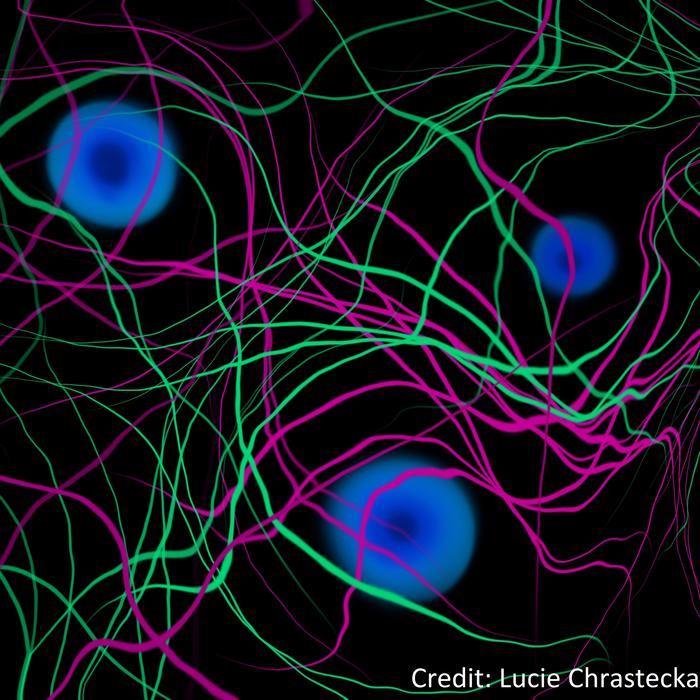The mini-halos of dark matter scattered throughout the Cosmos could function as highly sensitive probes of primordial magnetic fields. This is what emerges from a theoretical study conducted by SISSA and published in Physical Review Letters. Present on immense scales, magnetic fields are found everywhere in the Universe. However, their origin are still subjects of debate among scholars. An intriguing possibility is that magnetic fields originated near the birth of the universe itself, that is they are primordial magnetic fields. In the study, researchers showed that if magnetic fields are indeed primordial then it could cause an increase in dark matter density perturbations on small scales. The ultimate effect of this process would be the formation of mini-halos of dark matter, which, if detected would hint towards a primordial nature of magnetic fields. Thus, in an apparent paradox, the invisible part of our Universe could be useful in resolving the nature of a component of the visible one.

Credit: Image by Lucie Chrastecka
The mini-halos of dark matter scattered throughout the Cosmos could function as highly sensitive probes of primordial magnetic fields. This is what emerges from a theoretical study conducted by SISSA and published in Physical Review Letters. Present on immense scales, magnetic fields are found everywhere in the Universe. However, their origin are still subjects of debate among scholars. An intriguing possibility is that magnetic fields originated near the birth of the universe itself, that is they are primordial magnetic fields. In the study, researchers showed that if magnetic fields are indeed primordial then it could cause an increase in dark matter density perturbations on small scales. The ultimate effect of this process would be the formation of mini-halos of dark matter, which, if detected would hint towards a primordial nature of magnetic fields. Thus, in an apparent paradox, the invisible part of our Universe could be useful in resolving the nature of a component of the visible one.
Shedding light on the formation of Magnetic Fields
“Magnetic fields are ubiquitous in the Cosmos,” explains Pranjal Ralegankar of SISSA, the author of the research. “A possible theory regarding their formation suggests that those observed so far could be produced in the early stages of our Universe. However, this proposition lacks explanation in the standard model of physics. To shed light on this aspect and find a way to detect “primordial” magnetic fields, with this work we propose a method that we could define as ‘indirect.’ Our approach is based on a question: What is the influence of magnetic fields on dark matter?”. It is known that there is no direct interaction. Still, as Ralegankar explains, “there is an indirect one that occurs through gravity”.
Right from the primordial Universe
Primordial magnetic fields can enhance density perturbations of electrons and protons in the primordial Universe. When these become too large, they influence the magnetic fields themselves. The consequence is the suppression of fluctuations on a small scale. Ralegankar explains: “In the study, we show something unexpected. The growth in baryon density gravitationally induces the growth of dark matter perturbations without the possibility of subsequent cancellation. This would result in their collapse on small scales, producing mini-halos of dark matter.” The consequence, continues the author, is that although fluctuations in the density of baryonic matter are cancelled, they would leave traces through the mini-halos, all solely through gravitational interactions.
“These theoretical findings”, concludes Pranjal Ralegankar, “also suggest that the abundance of mini-halos is determined not by the present presence of primordial magnetic fields but rather by their strength in the primordial Universe. Thus, a detection of dark matter mini-halos would reinforce the hypothesis that magnetic fields formed very early, even within 1 second after the Big Bang.”
Journal
Physical Review Letters
DOI
10.1103/PhysRevLett.131.231002
Subject of Research
Not applicable
Article Title
Dark Matter Minihalos from Primordial Magnetic Fields
Article Publication Date
8-Dec-2023




